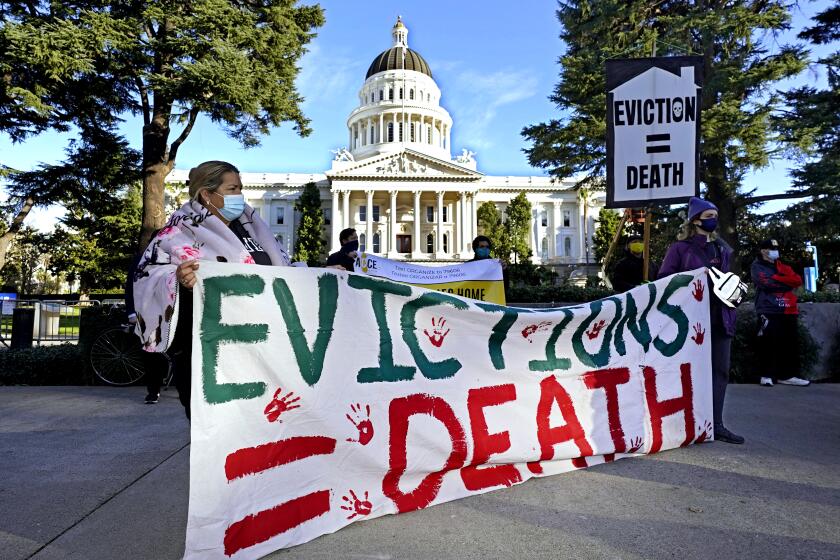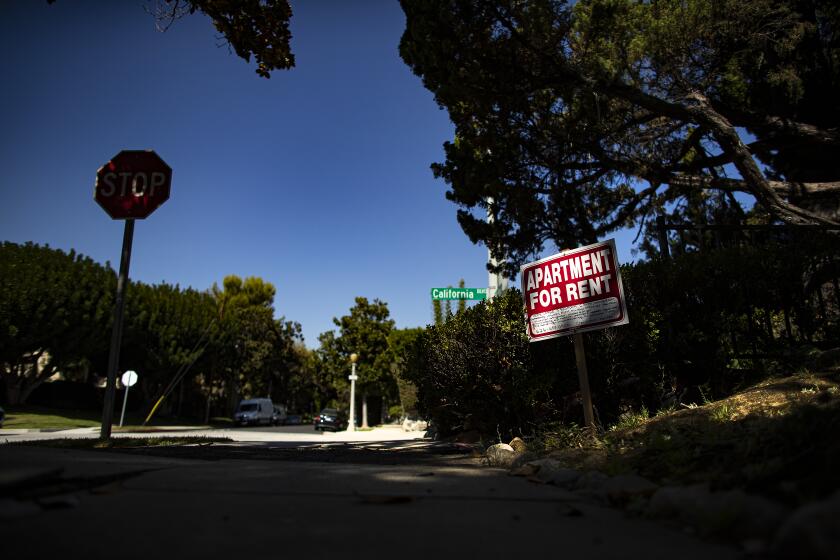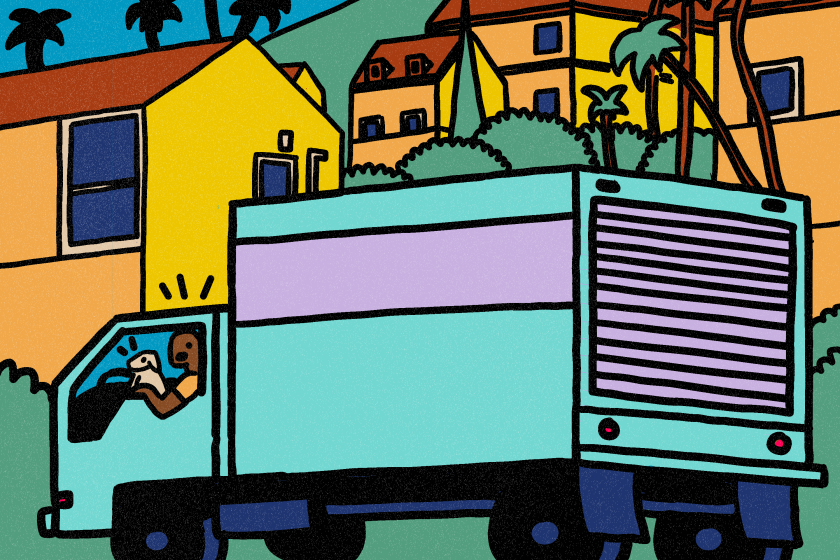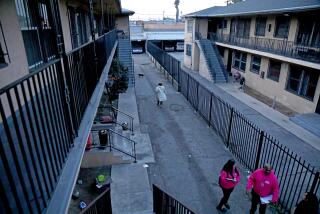Eviction moratoriums extended in U.S. — Californians were already protected. What you need to know
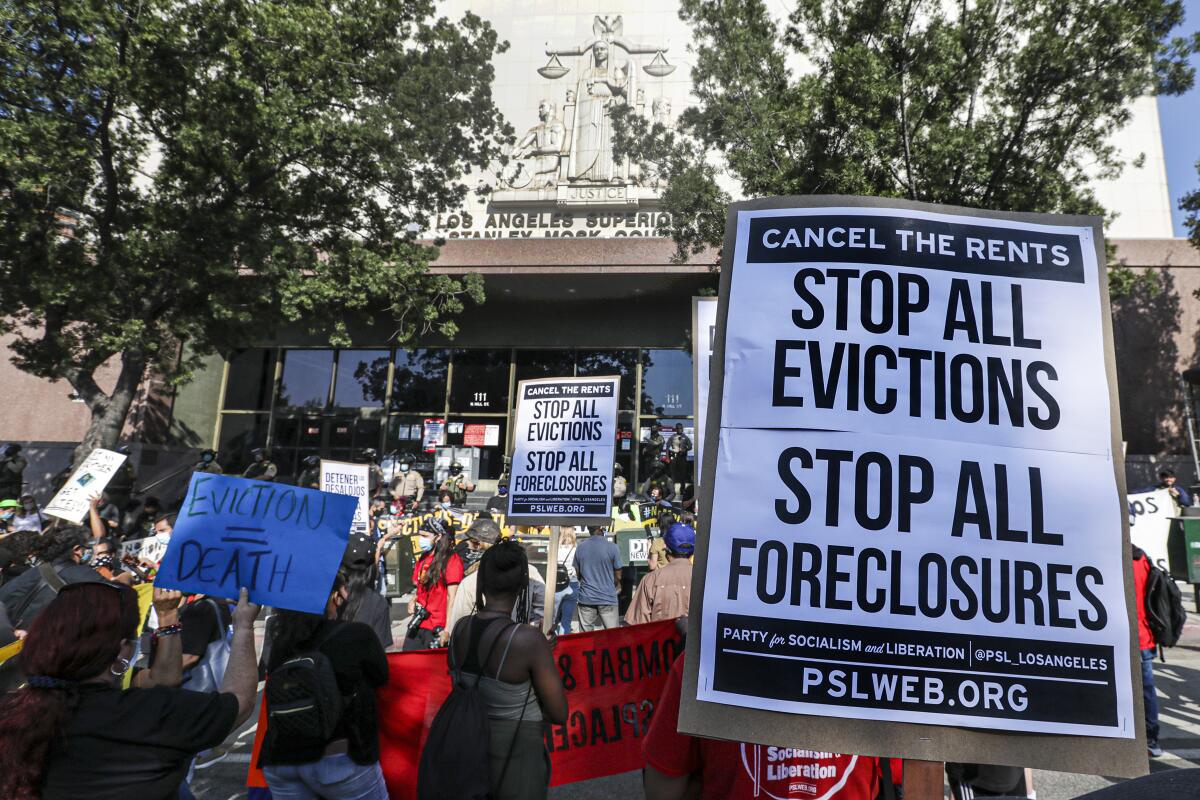
- Share via
The federal eviction moratorium received a two-month extension from the Biden administration Tuesday after an earlier moratorium expired Sunday.
Statewide and locally, moratoriums on evictions issued by the state and separately by Los Angeles County are still active but are set to expire soon unless extended again. Here’s what you need to know.
California’s protections
Renters are eligible for protection from eviction for nonpayment depending on the time period during which they were unable to pay their rent and whether they were able to fulfill the qualifications for the declaration of COVID-19 related financial distress form.
If you were unable to pay your rent between Sept. 1, 2020, and Sept. 30, 2021:
- Your landlord must provide a “pay or quit” notice to you with proper documentation.
- If within 15 days of receiving that notice you return to your landlord your declaration of COVID-19 related financial distress form, and are considered to be eligible under the guidance of the state, you cannot be evicted.
- Your landlord must provide this form to you in the language your rental agreement is signed in.
- You must return the form within 15 days.
- Your landlord may ask for supporting documentation to your form if your annual income is more than 130% of the median household income in your county and is more than $100,000. Documentation can include a tax return, pay stubs or a statement from your employer.
- If you can’t file the form with your landlord within the 15 days, you can file with the court as long as you have a “good reason” for not submitting it sooner. “Good reasons” include mistakes, inadvertence and surprise, according to the California Code of Civil Procedure.
- You must pay at least 25% of your rent between Sept. 1, 2020, and Sept. 30, 2021, by Sept. 30 of this year.
- This can be paid either monthly or in a lump sum.
Although the moratorium protects you from being evicted, it doesn’t mean you don’t have to pay your rent. Starting Nov. 1, 2021, landlords can begin taking tenants to small claims court for outstanding rent payments.
For more than a year, California has tried to protect tenants affected by COVID-19 from being evicted. But the efforts have had uneven results.
Los Angeles County eviction protections
For Angelenos, protections are also expiring at the end of September.
In L.A. County, you cannot be evicted, unless when necessary “to protect public health and safety,” for the following reasons:
- You didn’t pay your rent due to COVID-19-related financial hardships up to Sept. 30, 2021.
- Anything that qualifies as a “no-fault” eviction, which includes but is not limited to, your landlord wanting to do serious renovations to or demolish the unit.
- There is one caveat to this rule. If your landlord decides to use the unit you’re renting as the primary residence for themselves or their family, they may do so as long as they owned the property before June 30, 2021.
- You have unauthorized guests or pets staying with you because of COVID-19 related financial hardships.
- You denied your landlord entry to the property.
To be protected under the moratorium, you must file a declaration of COVID-19 related financial distress form with your landlord within seven days of when rent was due.
Again, this doesn’t mean you’ll never have to pay your rent. If you were unable to pay your rent for qualifying reasons between March 4, 2020, and Sept. 30, 2020, you must pay it back by Sept. 30, 2021. For any past due rent accrued between Oct. 1, 2020, and Sept. 30, 2021, the county defers to the rules of the state’s eviction moratorium.
Los Angeles opened applications for its rent-relief program, which aims to help tenants and landlords with debt stemming from the COVID-19 pandemic.
Where you can go for help
Remember: If you live in California, the eviction moratorium has not expired.
Statewide, landlords can evict their tenants only for legally valid reasons until Oct. 1, 2021. After that, tenants may start to see evictions for unpaid rent — unless the moratorium receives another extension. As it’s written now, the moratorium doesn’t allow rental payment deferment past May 21, 2023.
If your landlord attempts to lock you out, shuts off the utilities or removes your property in an attempt to evict you rather than going through a court process, they may face a fine between $1,000 and $2,500.
There is financial assistance for landlords and tenants through the county and state, Singh said, that can cover up to 100% of the costs associated with nonpayment of rent. For those eligible for rent relief, you’ll be protected from eviction for nonpayment after the Oct. 1 expiration date of the moratorium.
Residents of the city of Los Angeles are also afforded extra protections under the city’s anti-harassment ordinance.
If you or someone you know needs assistance with an eviction or rent, you can try these resources:
- Tenants Together: www.tenantstogether.org
- California rent relief call center: (833) 430-2122, between 7 a.m. and 7 p.m.
- California tenant protection information: housing.ca.gov/tenant/protection
- Stay Housed L.A.: www.stayhousedla.org; (833) 223-7368
If you’re like most people in Southern California, you live in a rental.
More to Read
Sign up for Essential California
The most important California stories and recommendations in your inbox every morning.
You may occasionally receive promotional content from the Los Angeles Times.
